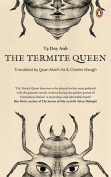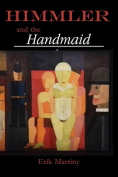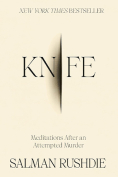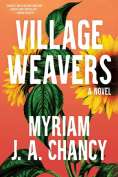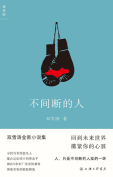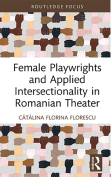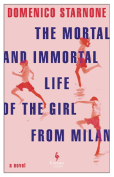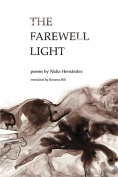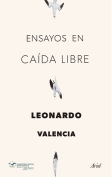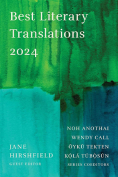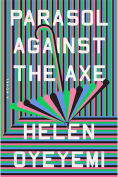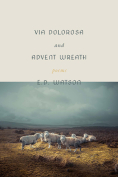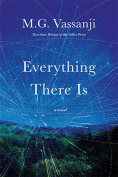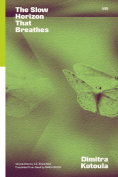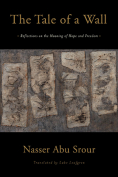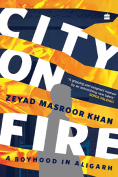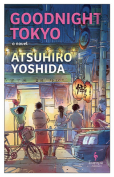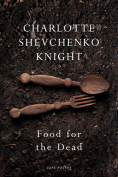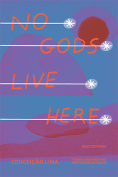Parasol Against the Axe by Helen Oyeyemi
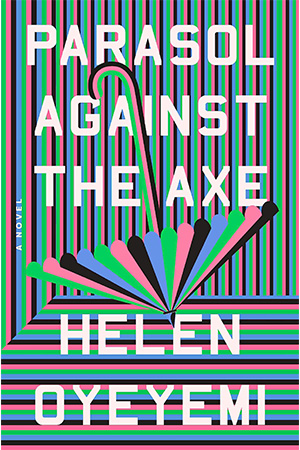 New York. Riverhead Books. 2024. 256 pages.
New York. Riverhead Books. 2024. 256 pages.
Parasol Against the Axe is Helen Oyeyemi’s love letter to Prague, a city where she has lived for the past ten years. Her literary career—including the novels Mr. Fox (2011); Boy, Snow Bird (2014); and Peaces (2021), to name but a few—is steeped in the interplay of language and its artifacts, whether it be ordinary conversations gone south or literary masterpieces in conversation with each other, all having just enough attention to truth and facts to show how tenuous language’s hold on them might be. As with her earlier novels, Parasol Against the Axe is metafiction at its finest.
Prague: a city where nothing is what it seems. Alliances and friendships shift, often without reason, at times dangerously so. It is precisely such instabilities—or “thresholds” as Oyeyemi calls them in her brief note to the reader—that attract her. “Prague will not be imagined in any of the contexts assigned to her. . . . This is what I like best about thresholds: at the moment of stepping over them, the only thing you can bring with you is your selves.” Enter a narrator (hereafter “Oyeyemi”) who is about to tell the story of Hero and Thea, a narrator who announces her own short-term memory challenges and the need to get to the story before she forgets.
Hero Tojosoa is traveling to Prague for Sofie Cibulkova’s bachelorette party. As a parting gift, Hero receives a novel, Paradoxical Undressing, from her teenaged son as something to read on her travels. The arrival of Dorothea Gilmartin opens up a host of opportunities for dramatic conflict, contradictory versions of their pasts, and, indeed, slight shifts in their very identities as presented by the narrator. Years earlier, Hero, Thea, and Sofie were the closest of friends and involved in the business of false identities, among other things. The depth of their falling out presents something of a mystery: why has Sofie invited either Hero or Thea? Other mysteries follow.
Such is the occasion against which Paradoxical Undressing plays. Hero begins reading her son’s gift on her way to Prague. Oyeyemi reproduces that first chapter, which startles Hero at the end with a frame-breaking “where are you?” When she later opens the book, she finds she is reading an entirely different story. Hero is not the only person reading the novel in the novel. Their versions are provided by Oyeyemi in what amount to a collection of short stories ostensibly written by individual readers. Hero might hope for a stabilizing series of encounters with the book’s author, Merlin Mwenda, which are as tasty as the ice cream he sells, but the ice cream melts as quickly as the interpretations of his novel.
It isn’t only Paradoxical Undressing and its fictional world that changes. There are a host of texts throughout the novel exhibiting various instabilities: texts, emails, conversations, a marriage certificate stuck to a door, and an unopened letter Hero receives from a man who live-streamed his suicide (as well as his writing of the letter). All this is mirrored by the labyrinthine city streets, echoed by a librarian’s labyrinthine set of tunnels, presumably allowing one to find one’s way out. But there is no crossing the threshold out of Prague. Hero entered the country in possession of Paradoxical Undressing. She isn’t allowed to cross the threshold out without the novel in hand. She is reduced to finding, of all things, a copy of an ever-changing text.
Parasol Against the Axe is metafiction at its most joyous, in which Oyeyemi masterfully plays with readerly expectations while also flouting what is simply ordinary in all human interactions.
Rick Henry
Canton, New York
